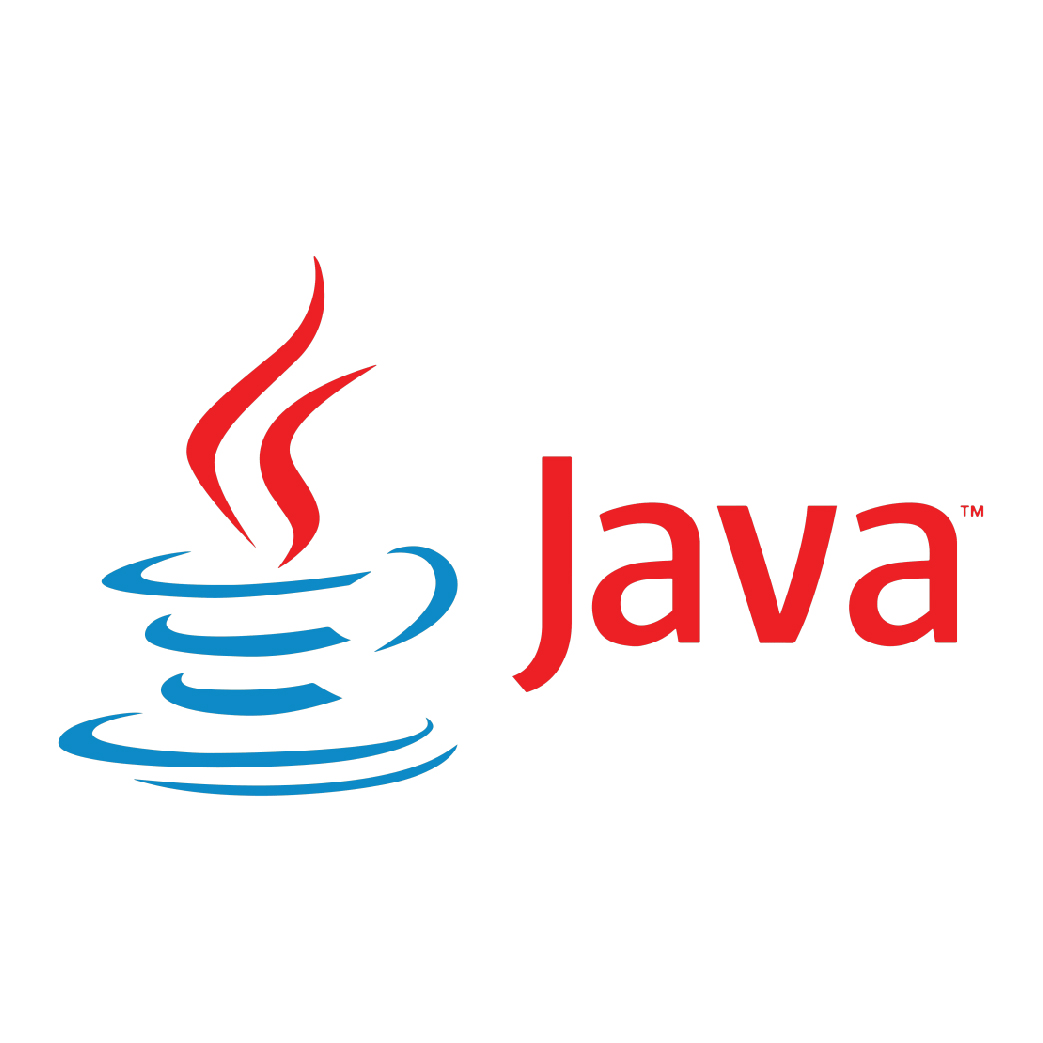Java vs .Net: The Ultimate Guide
Java vs .Net: Comparing the two most popular programming languages to help you choose the right one for your project.

Everything you need to know about
Java vs .Net
Java and .NET are two popular programming languages that have been competing for many years. Java was created by James Gosling at Sun Microsystems in the mid-1990s, while Microsoft developed .NET in the early 2000s. Both languages have their strengths and weaknesses, and the choice between them depends on the project’s specific requirements.
Performance
Regarding performance, Java and .NET are both competent languages. Java’s Virtual Machine (JVM) allows the tongue to run on any platform. In contrast, Common Language Runtime (CLR) allows .NET code to be executed on any operating system that supports it. Regarding raw performance, Java is faster than .NET because it is compiled into machine code at runtime. In contrast, .NET code is compiled into an intermediate language that is compiled just in time (1).
“Regarding performance, .NET framework wins over its competitor for sure. It should be noted though that, due to JIT compiler optimizations, it can be even faster than .NET framework.”
– Sam Solutions
Development Tools
Java and .NET both have a rich set of development tools available. The popular Eclipse IDE, IntelliJ IDEA, and NetBeans for Java exist. For .NET, there is Visual Studio, which is widely regarded as one of the best development environments available. Both languages have a wide range of plugins and extensions available, which can help developers to write code more efficiently and effectively.
Our Executive Team

Common Industries we provide Java vs .Net Services:
Healthcare & Life Sciences
SaaS & Information Services
Manufacturing
Financial Services & FinTech
Retail & E-Commerce
Insurance
Logistics & Automotive
Travel & Hospitality
Java vs .Net:
Community Support
Java has an extensive and active community, which means that there is a wealth of knowledge and resources available for developers. The community is also very open and collaborative, which makes it easy to find help and support when needed. .NET also has a large community. Still, it tends to be more focused on Microsoft technologies. This can make it more difficult to find support for non-Microsoft technologies.
Ease of Learning
Java and .NET are relatively easy to learn, especially for developers familiar with other programming languages. Java’s syntax is very similar to C++, while .NET’s syntax is identical to C#. However, some developers may find Java’s verbose syntax more challenging to read and write than .NET’s more concise syntax (2).
“Java takes more effort to learn because of its syntax and primitive data types. However, both languages require you to know object-oriented design principles.”
– Pixel Crayons
Platform Independence
One of the main advantages of Java is its platform independence. Java code can run on any platform with a JVM installed, meaning that developers can write code once and run it anywhere. .NET code, on the other hand, is platform-dependent, which means that it can only run on platforms that support the .NET Framework. However, .NET Core, a lightweight and open-source version of .NET, has been developed to address this limitation and allow cross-platform development.


Common Industries we provide Java vs .Net Services:

COST-EFFECTIVE DEVELOPERS
Our Software Developers and Engineers cost
on average $45 to $65 per hour

HIGHEST QUALITY DEDICATED TEAMS
Access to the TOP 1% of Nearshore Software Development resources in Latin America

TIME SENSITIVE DEVELOPMENT
Sonatafy’s Nearshore Talent Acquisition can place qualified Software Engineering teams in as quick as 2 weeks
Some Similarities
Between .NET and Java
Despite their differences, .NET and Java share some similarities, including:
- Both languages are trendy and widely used in enterprise software development.
- Both languages are highly scalable and can handle large-scale applications.
- Both languages have strong community support and active developer communities.
- Both languages support Object-Oriented Programming (OOP) principles.
Java and .NET have their strengths and weaknesses, and developers should choose the language that best suits their project requirements and team skills. Java is platform-independent and offers support for large-scale enterprise applications. At the same time, .NET is a good choice for Windows-based applications and enterprise software development. Both languages provide good performance, scalability, and security and have strong community support and active developer communities. Ultimately, the decision between .NET and Java should be based on carefully evaluating the project requirements, development team skills, and available resources and support.

Interested In Working With Sonatafy?
Java vs .Net:
Security
Java has a reputation for being more secure than .NET because it has a more rigorous security model. Java’s sandboxing technology ensures that code cannot access resources outside its sandbox. At the same time, .NET relies on the operating system’s security features. However, this does not mean that .NET is inherently less secure, as security largely depends on how the code is written and implemented.
Scalability
Java and .NET are highly scalable languages that handle large and complex applications. However, Java is often seen as more scalable because it has been used to develop some of the world’s largest and most complex applications. Additionally, Java’s Garbage Collection (GC) technology helps to manage memory more efficiently, which can help to improve performance in large-scale applications.
Cost
Java is an open-source language that is free to use and distribute. This makes it a popular choice for startups and small businesses operating on a tight budget. .NET, on the other hand, requires a license, which can be expensive for larger projects. However, Microsoft offers a free version of .NET called Visual Studio Community, a good option for smaller projects.
Java and .NET are powerful and capable languages that can be used to develop a wide range of applications. The choice between the two largely depends on the project’s specific requirements, including performance, development tools, community support, ease of learning, platform independence, security, scalability, and cost.
Java’s platform independence, large and active community, and a strong reputation for scalability make it a popular choice for large and complex applications, especially those that need to run on multiple platforms. However, it can be more verbose and may have a steeper learning curve for some developers.
On the other hand, NET’s tight integration with Microsoft technologies, concise syntax, and support for cross-platform development through .NET Core makes it a good choice for Windows-based applications and those running on multiple platforms. However, its platform dependence and licensing costs can be drawbacks for some developers (3).
“If you rely mostly on Windows-based software to run your business and you are a loyal client of Microsoft products, you may need to opt for a .NET-powered solution to minimise expenditures.”
– Code Burst
Ultimately, the choice between Java and .NET depends on the developer’s and the project’s specific needs and preferences. Both languages have strengths and weaknesses, and developers should carefully consider their requirements before choosing a language. It is also worth noting that many developers are proficient in both Java and .NET and may use both languages depending on the project requirements.
Java and .NET are powerful and capable programming languages offering various development options. The choice between them depends on multiple factors, such as project requirements, developer skills, and cost-effectiveness. Therefore, developers should consider all factors before choosing the language best suited for their project.
Integration with Other Technologies
Another essential factor when comparing Java and .NET is their integration with other technologies. Java has many libraries and frameworks, making it a popular choice for building web applications, mobile applications, and enterprise software. Some popular Java frameworks include Spring, Hibernate, and Struts.
On the other hand, .NET is tightly integrated with Microsoft technologies and is a popular choice for building Windows-based applications. It also offers good support for web development with ASP.NET. It has a range of libraries and frameworks available, such as Entity Framework and LINQ.
Community Support and Resources
The availability of community support and resources is an essential factor to consider when choosing a programming language. Java has a massive and vibrant community with many online forums, user groups, and open-source projects that can provide developers with the support and resources they need. In addition, many online tutorials and training courses are available to help developers learn Java quickly.
Similarly, .NET has a large community of developers and enthusiasts, with many forums, user groups, and online resources available. Microsoft also provides extensive documentation, training resources, and community support for .NET, making it easier for developers to learn and use the language.
%
TOP NEARSHORE TALENT
%
ATTRITION RATE
%
ENGLISH PROFICIENCY
RESOURCES DEPLOYED
Job Market and
Career Opportunities
Another factor to consider is the job market and career opportunities for developers proficient in Java and .NET. Java has been around for over two decades and is widely used in the enterprise software development industry. This has led to a massive demand for Java developers, making it one of the most popular programming languages for job opportunities.
Similarly, .NET has been widely adopted in the enterprise software development industry, with many companies using .NET for their Windows-based applications. This has led to a high demand for .NET developers in the job market, making it a popular choice for developers looking to build a career in software development.
Java and .NET are both powerful programming languages with their strengths and weaknesses. When choosing between the two, developers should consider factors such as performance, development tools, community support, ease of learning, platform independence, security, scalability, cost, integration with other technologies, community support, and job market and career opportunities.
Java’s platform independence, vast community support, and scalability make it a popular choice for building large-scale applications. It is also a good choice for developers who want to work with a language with a vast range of libraries and frameworks.
On the other hand, NET’s tight integration with Microsoft technologies, concise syntax, and support for cross-platform development through .NET Core makes it a popular choice for building Windows-based applications and web development. It also offers good support for enterprise software development.
Ultimately, the choice between Java and .NET depends on the project’s specific requirements, the developer’s skills and preferences, and the availability of resources and support. Developers should carefully evaluate their options and choose the language best suits their needs.
It is worth noting that many developers are proficient in both Java and .NET and may use both languages depending on the project requirements. This versatility can be advantageous, allowing developers to choose the language best suited for each project.
In terms of performance, both Java and .NET can deliver high-performance applications. However, the application’s performance depends on many factors, such as code quality, architecture, and optimization techniques.
Security is also an important consideration when choosing a programming language. Java and .NET offer good security features and can be used to build secure applications. However, developers must follow security best practices and operate safe coding techniques to ensure their applications are secure.
Regarding cost, Java is open-source and free to use, making it a popular choice for many developers. On the other hand, .NET is a proprietary technology and requires a license from Microsoft. This can disadvantage some developers, especially those on a tight budget.
Java and .NET are excellent programming languages offering many features and capabilities. The choice between the two depends on many factors, such as the project requirements, developer skills, platform independence, integration with other technologies, community support, job market, and cost. It is essential for developers to carefully evaluate their options and choose the language that is best suited to their specific needs.
Java vs .Net Companies
Awards & Recognitions
Helping take our clients’ software development businesses to the next level has been quite an experience, and we are not slowing down any time soon. Providing a memorable experience and far surpassing our customers’ software development and solutions goals is one of the most rewarding experiences of our company to date.
We’re ready to start helping your company grow with our industry-leading custom software development solution, are you?

Earning Trust & Loyalty for our Software Development Services
Our executive team proudly provides complete software development solutions in the healthcare, SaaS, Manufacturing, and FinTech fields from deployment to completion.
Our client-centric software development solutions have made us the healthcare app development provider of choice for clients such as Akido Labs, Datacubed Health, Sema Technologies, and Semantic AI, among others. With thousands of software development engineers deployed to date, clients love our personalized high-touch approach.
With high-quality delivery web development services and strong customer support and management, we give you the ability to focus on business decisions rather than software development issues.
Sonatafy Technology services can dramatically
improve theJava vs .Net Services.
Our Software Development Clients Have Spoken.

“We increased our productivity and quality by extending our team with Sonatafy resources. They are part of our ‘family’. Their passion, dedication, experience, and wisdom has been nothing short of impressive.”

“We have been using Sonatafy for software team augmentation. Their vetting process is extremely through and has saved us a huge amount of time. All of the candidates presented have been outstanding and have fit into our team perfectly.”

“The Sonatafy team consists of members who are dedicated, personable, and attentive. They will search tirelessly to match the right talent to meet your skills and budgetary requirements. Regardless of your situation, you cannot go wrong with Sonatafy.”

“The Sonatafy team has continually impressed us with the quality of their engineers — we have found excellent engineering leaders in their contractors who have helped tremendously. They really are an integral part of our team, and we’re very thankful for Sonatafy’s professional leadership in this space. I heartily recommend them to augment anyone’s teams or projects.”

“At IMAIGE Analytics, we are driven by purpose and outcomes. Sonatafy has been the exact type of partner we need to help us deliver on both. They’ve found solutions specific to our purpose and needs, their resources have contributed like long time team members from day one and they seem dedicated to progressively better outcomes from the start. Thanks to the team and to Steve for taking the time to make our business better!”

“The entire team at Sonatafy greatly surpassed our expectations. We require very specific skill sets and the team did an incredible job of screening and selecting top – notch candidates. Sonatafy’s attention to detail, professionalism, open communication, and collaboration with us ensured that we found highly skilled talent that fit seamlessly into our company’s culture. I can’t recommend them strongly enough.”

“Sonatafy makes it easy to find great and professional talent, with their help we have been able to solidify our team. Their process and communication is a refresher and a weight off our shoulders.”

I’ve used Sonatafy Technologies for the last 5 + years at several of my companies both small and large, in a staff augmentation capacity. I have been consistently impressed with the high – quality of technical skills as well as the team member’s high level of engagement and dedication to my projects. I’ve always considered my dedicated Sonatafy resources as members of my team , and their contributions and performance has been excellent. The combination of high performance and afford ability has been an outstanding benefit , and I would highly recommend using Sonatafy Technologies as your near shore technology partner.
Frequently ask questions about
Java vs .Net
What is Java?
Java is a high-level, object-oriented programming language developed by Sun Microsystems (now owned by Oracle Corporation) in the mid-1990s. It is designed to be platform-independent. Java code can run on any device or operating system with a Java Virtual Machine (JVM) installed.
Why Java?
Java is famous for building large-scale enterprise applications due to its platform independence, scalability, and various libraries and frameworks. It is also used for creating mobile applications, web applications, and games.
What is .NET?
.NET is a framework developed by Microsoft for building Windows-based applications and web development. It provides a range of libraries and tools that developers can use to build applications using a variety of programming languages, including C#, F#, and Visual Basic.
Why .NET?
.NET is tightly integrated with Microsoft technologies, making it a popular choice for building Windows-based applications. It also offers good support for web development with ASP.NET. It has a range of libraries and frameworks available, such as Entity Framework and LINQ.
Primary Points of Difference between Java and .NET
The primary points of difference between Java and .NET include:
- Platform Independence: Java is platform-independent, while .NET is designed primarily for Windows-based applications.
- Development Tools: Java has a range of development tools available, while .NET relies heavily on Microsoft’s Visual Studio.
- Community Support: Java has a vast and vibrant community, while .NET has a large community of developers and enthusiasts.
- Syntax: Java and .NET have different syntaxes and coding styles.
- Licensing: Java is open-source and free to use, while .NET is a proprietary technology requiring a Microsoft license.
Java Vs .NET: Performance
Both Java and .NET are capable of delivering high-performance applications. However, the application’s performance depends on many factors, such as code quality, architecture, and optimization techniques.
Java Vs .NET: Advantages
The advantages of Java include platform independence, scalability, vast community support, and a range of libraries and frameworks. The benefits of .NET include tight integration with Microsoft technologies, good support for web development, and a range of libraries and frameworks.
Java Vs .NET: Disadvantages
The disadvantages of Java include a steep learning curve, a slower speed of coding, and some security concerns. The disadvantages of .NET include a higher cost due to licensing, limited platform support, and reliance on Microsoft technologies.
Java Vs .NET: Market Share
Java has a higher market share than .NET, with many applications and industries using the language. However, .NET is still famous for Windows-based applications and enterprise software development.
How to Choose between Java and .NET
The choice between Java and .NET depends on the project’s specific requirements, the developer’s skills and preferences, and the availability of resources and support. Developers should carefully evaluate their options and choose the language best suits their needs.
Features of .Net
The features of .NET include a range of libraries and frameworks, support for multiple programming languages, tight integration with Microsoft technologies, good web development support, and cross-platform development through .NET Core.
The features of Java include platform independence, vast community support, scalability, and a range of libraries and frameworks.
Technical Comparison
A technical comparison between Java and .NET would involve performance, scalability, development tools, syntax, and integration with other technologies.
.Net vs JAVA: Integrated Development Environment
.NET relies heavily on Microsoft’s Visual Studio for development. At the same time, Java has a range of development tools available, such as Eclipse and NetBeans.
Java vs Dotnet: Support for Languages
Java supports various languages, including Java, Kotlin, and Scala. In contrast, .NET supports languages such as C#, F#, and Visual Basic.
.Net vs Java: Operating Systems
Java is platform-independent and can run on any device or operating system with a JVM installed. At the same time, .NET is primarily designed for Windows-based applications.
.Net vs Java: Performance
Both Java and .NET can deliver high-performance applications. Still, performance depends on factors such as code quality, architecture, and optimization techniques.
Dotnet vs Java: Speed Coding
Java has a steep learning curve, but it is generally faster to code once the developer becomes proficient. On the other hand, .NET has a quicker learning curve. Still, the coding speed may depend on the specific development environment and tools used.
.Net vs Java: Scalability
Both Java and .NET are highly scalable and can handle large-scale enterprise applications.
.Net vs Java: Learning Curve
Java has a steeper learning curve than .NET, which may make it more challenging for novice developers. However, once developers become proficient, Java can be faster to code in.
.Net vs Java: Syntax
Java and .NET have different syntaxes and coding styles, which may make it easier for some developers to learn one language over the other.
.Net vs Java: Security
Java has been criticized in the past for security vulnerabilities. Still, the language has since addressed many of these concerns. .NET also has a good track record regarding security.
.Net vs Java: Example
An example of a Java application could be a large-scale enterprise system that manages inventory and logistics for a global supply chain. An example of a .NET application could be a Windows-based desktop application that contains customer information and sales data for a retail store.
.Net vs Java: Licensing
Java is open-source and free to use, while .NET is a proprietary technology requiring a Microsoft license.
Non-Technical Comparison
A non-technical comparison between Java and .NET would involve looking at market share, popularity, time-to-market, and salary.
.Net vs Java: Market Overview & Popularity
Java has a higher market share and is used in various applications and industries. However, .NET is still famous for Windows-based applications and enterprise software development.
.Net vs Java: Time-to-Market
The time-to-market for a Java application may be longer due to the steep learning curve and the need to build custom solutions for cross-platform development. On the other hand, .NET has a faster learning curve and provides good support for Windows-based applications, which may result in a shorter time-to-market.
.Net vs Java (Salary)
The salary for Java and .NET developers may vary depending on the industry, location, and experience level. However, according to industry data, both languages offer competitive salaries and job opportunities.
Java vs .Net: Usage Statistics
Java and .NET are widely used in enterprise software, mobile application, and web development. According to industry data, Java is used in approximately 45% of enterprise applications, while .NET is used in about 30%.
How to Choose Between .Net vs. Java
When choosing between .NET and Java, developers should consider factors such as the project’s specific requirements, the skills and preferences of the development team, and the availability of resources and support. Developers should also evaluate each language’s features, advantages, and disadvantages to determine which language best suits their needs.
Where to use Java
Java is a good choice for building large-scale enterprise, mobile, and web applications. It is also commonly used in the financial industry, healthcare, and education.
Where to use .Net
.NET is a good choice for building Windows-based applications and enterprise software development. It is also commonly used in retail, financial services, and healthcare.
Companies using .NET and Java
Many large companies use .NET, Java, or a combination of both, for their software development needs. Examples of companies using .NET include Microsoft, Accenture, and IBM, while those using Java include Google, Amazon, and LinkedIn.
Should I learn .NET or Java?
The answer to this question depends on your preferences, career goals, and the specific project requirements you are working on. If you want to develop applications for Windows-based systems or enterprise software development, .NET might be a good choice. On the other hand, if you want to build platform-independent applications or work with large-scale enterprise applications, Java might be a better fit (4).
“It is a common notion that .NET is more suitable for building enterprise-level apps. Java is better at interoperability than .NET when you consider their open-source compatibility.”
– UpGrad
What are the disadvantages of .NET over Java?
Some of the disadvantages of .NET over Java include:
- Platform dependence: .NET applications can only run on Windows-based systems, while Java applications can run on multiple platforms.
- Licensing costs: .NET development tools and frameworks often require licenses. In contrast, many Java tools and frameworks are open-source and free.
- Limited language support: .NET is primarily designed to work withVisual Basic and C# (https://sonatafy.com/c-vs-net/), while Java supports multiple programming languages.
Is .NET easier to learn than Java?
The answer to this question depends on your prior experience and familiarity with programming languages. If you are already familiar with C# or Visual Basic, .NET might be easier for you to learn. On the other hand, if you are familiar with other programming languages, such as Python or JavaScript, Java might be easier to understand due to its similarity.
Is .NET still in demand in 2023?
Yes, .NET is still in demand in 2023, particularly for enterprise software development and Windows-based applications. While Java remains a popular choice for large-scale enterprise applications, .NET is still widely used and in demand in many industries. With the increasing adoption of cloud-based systems and the continued growth of the software development industry, the need for a .NET Development Company will likely remain high in the coming years.
.NET vs. Java Salary
The salaries of .NET and Java developers can vary depending on various factors such as experience, location, and company size. According to data from Glassdoor, the average salary for a .NET developer in the United States is around $81,000 per year, while the average salary for a Java developer is around $91,000. However, these figures are not absolute and can vary depending on the specific job requirements, company, and location.
Java vs .NET: Which is better for your career?
The choice between Java and .NET ultimately depends on your career goals and interests. Both languages are widely used and offer good career opportunities in various industries. Java is famous for its platform independence and strong presence in enterprise software development. At the same time, .NET is a popular choice for Windows-based applications and enterprise software development. Ultimately, choose the language that aligns with your career goals and the industry you wish to work in.
.NET or Java: Which is better?
The choice between .NET and Java ultimately depends on your project requirements and team skills. Both languages have strengths and weaknesses and can be used for various projects. If you are developing applications for Windows-based systems or enterprise software development, .NET might be a better choice. Suppose you want to create platform-independent applications or work with large-scale enterprise applications. In that case, Java might be a better fit.
.NET vs. Java Performance
Both .NET and Java offer good performance and scalability for enterprise applications. However, the performance of the two languages can depend on various factors such as application complexity, hardware resources, and optimization techniques. Generally, Java is known for its faster runtime performance and better memory management. In contrast, .NET is known for its better support for concurrency and threading.
.NET or Java: Which is easier?
The choice between .NET and Java regarding ease of learning depends on your prior experience and familiarity with programming languages. If you are already familiar with C# or Visual Basic, .NET might be easier for you to learn. On the other hand, if you are familiar with other programming languages, such as Python or JavaScript, Java might be easier to understand due to its similarity. Click here to learn more about how Python and .NET compare.
.NET vs. Java Syntax
The syntax of .NET and Java can differ, although both languages follow similar programming paradigms, such as object-oriented programming. The syntax of .NET is identical to that of C# and Visual Basic. In contrast, the syntax of Java is similar to that of C++. However, both languages are relatively easy to learn and understand with practice and experience.
.NET or Java: Which is better for freshers?
The choice between .NET and Java for freshers depends on various factors such as personal interest, career goals, and available resources. Both languages offer good career opportunities for freshers in multiple industries and have strong community support and active developer communities. Ultimately, freshers should choose the language that best aligns with their interests, career goals, and available resources.
.NET vs. Java Salary in India
The salaries of .NET and Java developers in India can vary depending on experience, location, and company size. According to data from Glassdoor, the average salary for a .NET developer in India is around INR 5,00,000 per year, while the average salary for a Java developer is around INR 7,50,000 per year. However, these figures are not absolute and can vary depending on the specific job requirements, company, and location.
- “Java vs .NET Comparison – Which One You Should Choose?” by Guru99: https://www.guru99.com/java-vs-dotnet.html
This article comprehensively compares Java and .NET, covering topics such as features, performance, learning curve, market share, and more.
- “Java vs .NET: Choosing a Programming Language for Your Project” by Altar.io: https://altar.io/blog/java-vs-net-choosing-a-programming-language-for-your-project
This article provides a detailed comparison of Java and .NET, focusing on performance, scalability, ecosystem, community, and market trends. It also includes a valuable infographic summarizing the key differences between the two languages.
References:
- Regarding performance, .NET framework wins over its competitor for sure. It should be noted though that, due to JIT compiler optimizations, it can be even faster than .NET framework.. – Sam Solutions Quote
https://www.sam-solutions.com/blog/net-vs-java/ - Java takes more effort to learn because of its syntax and primitive data types. However, both languages require you to know object-oriented design principles. –Pixel Crayons Quote
https://www.pixelcrayons.com/blog/java-vs-net/ - If you rely mostly on Windows-based software to run your business and you are a loyal client of Microsoft products, you may need to opt for a .NET-powered solution to minimise expenditures. – Code Burst Quote
https://codeburst.io/java-vs-net-factors-to-consider-cde1d22b06a7 - It is a common notion that .NET is more suitable for building enterprise-level apps. Java is better at interoperability than .NET when you consider their open-source compatibility. – UpGrad Quote
https://www.upgrad.com/blog/java-vs-net-difference-between-java-and-net/#:~:text=NET%20is%20more%20suitable%20for,Java%20has%20gotten%20ahead%20of%20.









